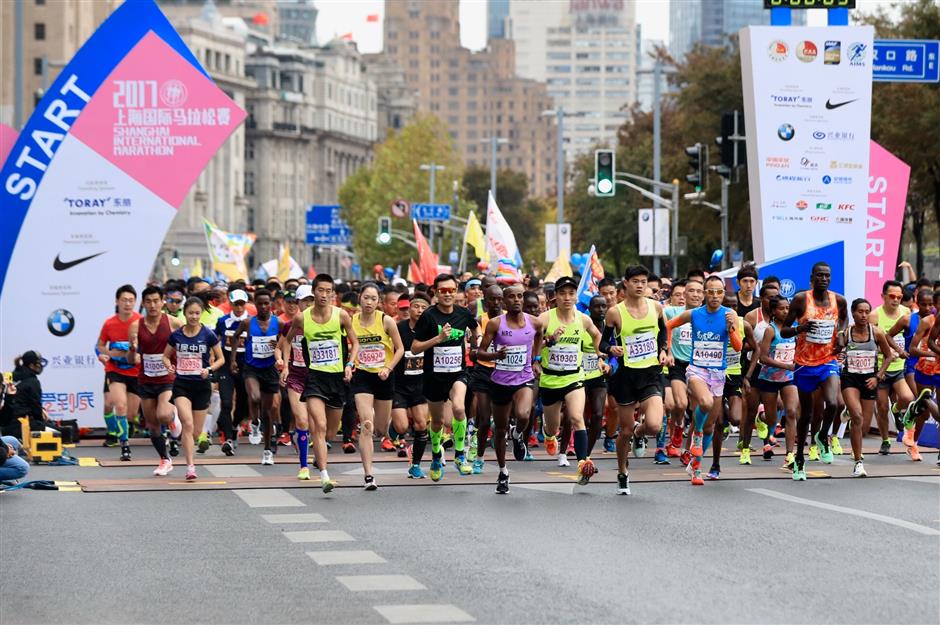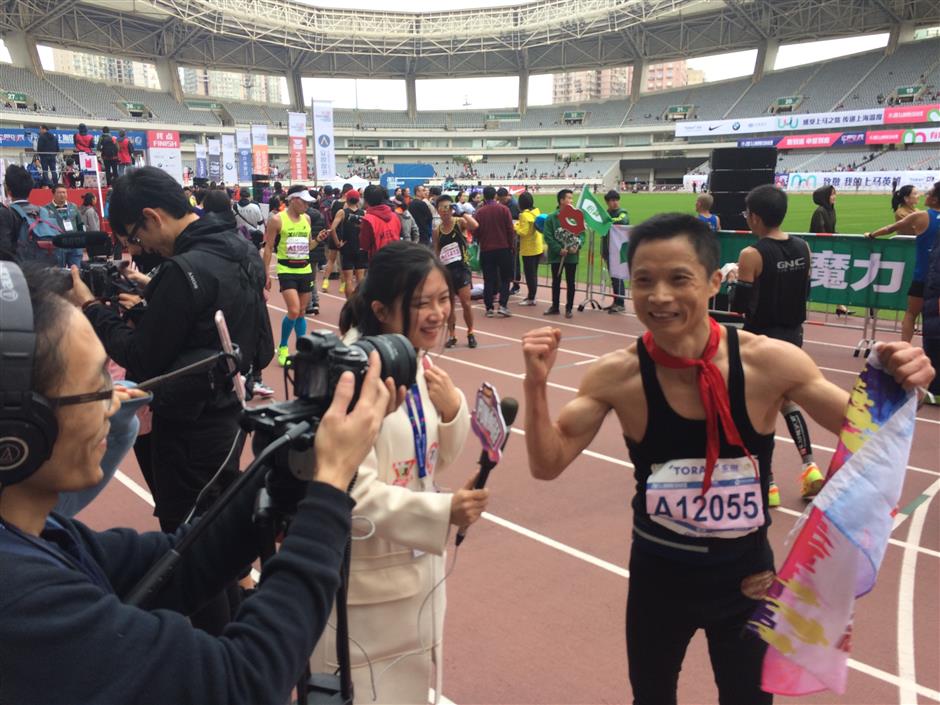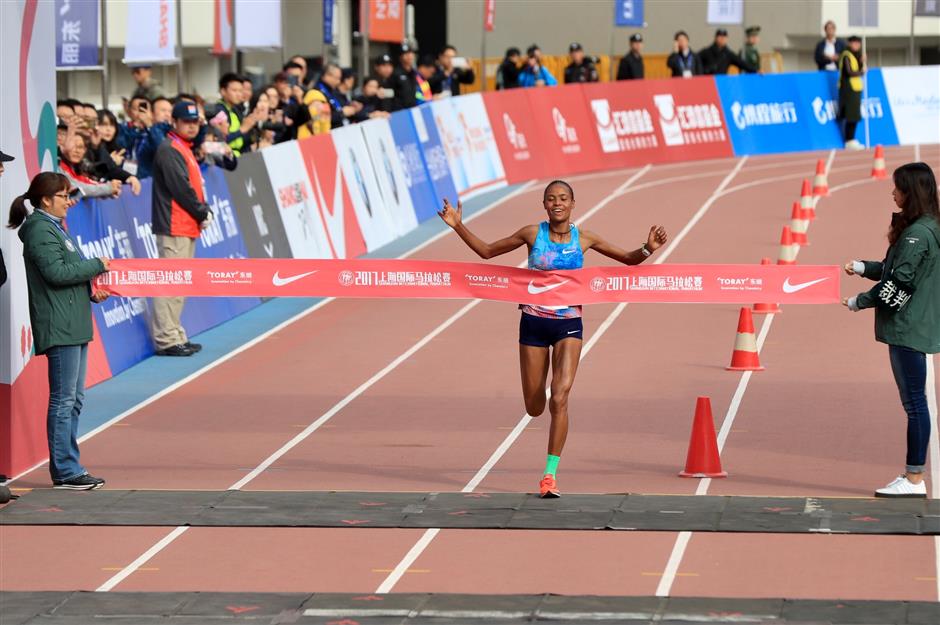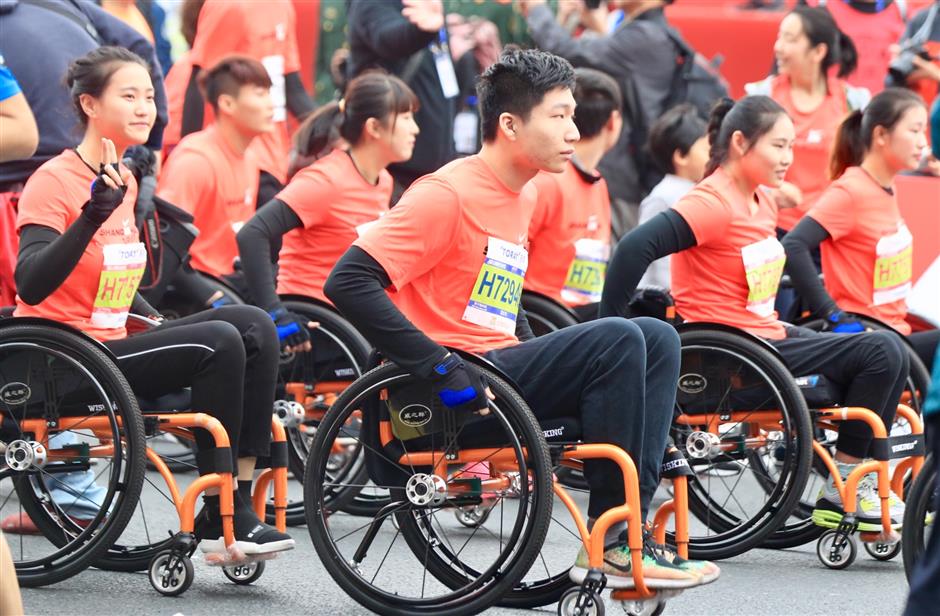38,000 compete in this year's marathon

The Shanghai International Marathon kicks off from the Bund at 7am on a cloudy morning with a temperature around 15 degrees Celsius – great weather conditions for long-distance running.

A runner celebrates after crossing the finish line at Shanghai Stadium.
South Africa’s Stephen Mokoka won the Shanghai International Marathon for the fourth time, crossing the finish line at Shanghai Stadium in 2 hours 8 minutes and 35 seconds yesterday morning.
“The beautiful weather helped me to improve my result compared to last year’s (2:10:18),” the 32-year-old told reporters. “The adjustment to this year’s route also suits me fine.”
Mokoka, who has taken part in the Shanghai event seven times, also won the title in 2013, 2014 and 2016. This year he was followed by Kenyans Ernest Kiprono Ngeno (2:08:38) and Asbel Kipsang (2:09:02).
The women’s champion was also a familiar face — Roza Dereje Bekele from Ethiopia ran a personal best of 2:22:43 compared to last year’s 2:26:18. She was followed by Kenya’s Lydia Cheromei (2:23:31) and Ethiopian Hirut Tibebu Damte (2:23:35).

Stephen Mokoka from South Africa wins the men's race, clocking in at 2 hours 8 minutes and 35 seconds.

Roza Dereje Bekele from Ethiopia wins the women's race with a personal best of 2:22:43.
The race kicked off from the Bund at 7am on a cloudy morning with temperatures around 15 degrees Celsius — ideal weather conditions for long-distance running.
The organizer had adjusted this year’s route to give spectators a better view and improve the experience for the runners.
At the 17 kilometer mark, runners entered Huangpu District’s riverside area instead of making a U-turn along Miaojiang Road as previously. The route at the 30 kilometer mark was also changed to allow runners to avoid Longteng Bridge, which some had found too much of a challenge.
This year was also the first time that the 21-kilometer half marathon had been canceled, with its 8,000 places allotted to the 42.2k full marathon to meet demand.
Around 28,000 runners took part in the full marathon. The 5k and 10k races each had 5,000 runners taking part.

Disabled participants complete the 5km race on wheelchairs.
Twenty slots in the 5k run were reserved for wheelchair athletes, with a team of volunteers and track staff on hand to assist if needed.
“It’s the first time Shanghai International Marathon formed a team especially for disabled people,” said Zhou Jin, general manager of organizer Donghao Lansheng Event Management Co. “To strive for self-improvement is the charm of sport,” Zhou said. “With the cooperation of the Shanghai Disabled Persons’ Federation, this was a first try, so the number of the participants was limited.”
Stationed along the route were 22 medical service areas, four medical stations and 22 ambulances. There were also 3,800 volunteers, 380 referees, and 8,000 medical and security staff.
Because of the increased number of full marathon runners, more food stands had been set at the latter part of the route.
According to the organizer, 94 percent of this year’s marathon runners completed the race.
Shanghai East Hospital said a total of 564 runners had received medical attention, including six foreign runners. Most suffered muscle spasm, muscle strain, bruising and low blood sugar.















